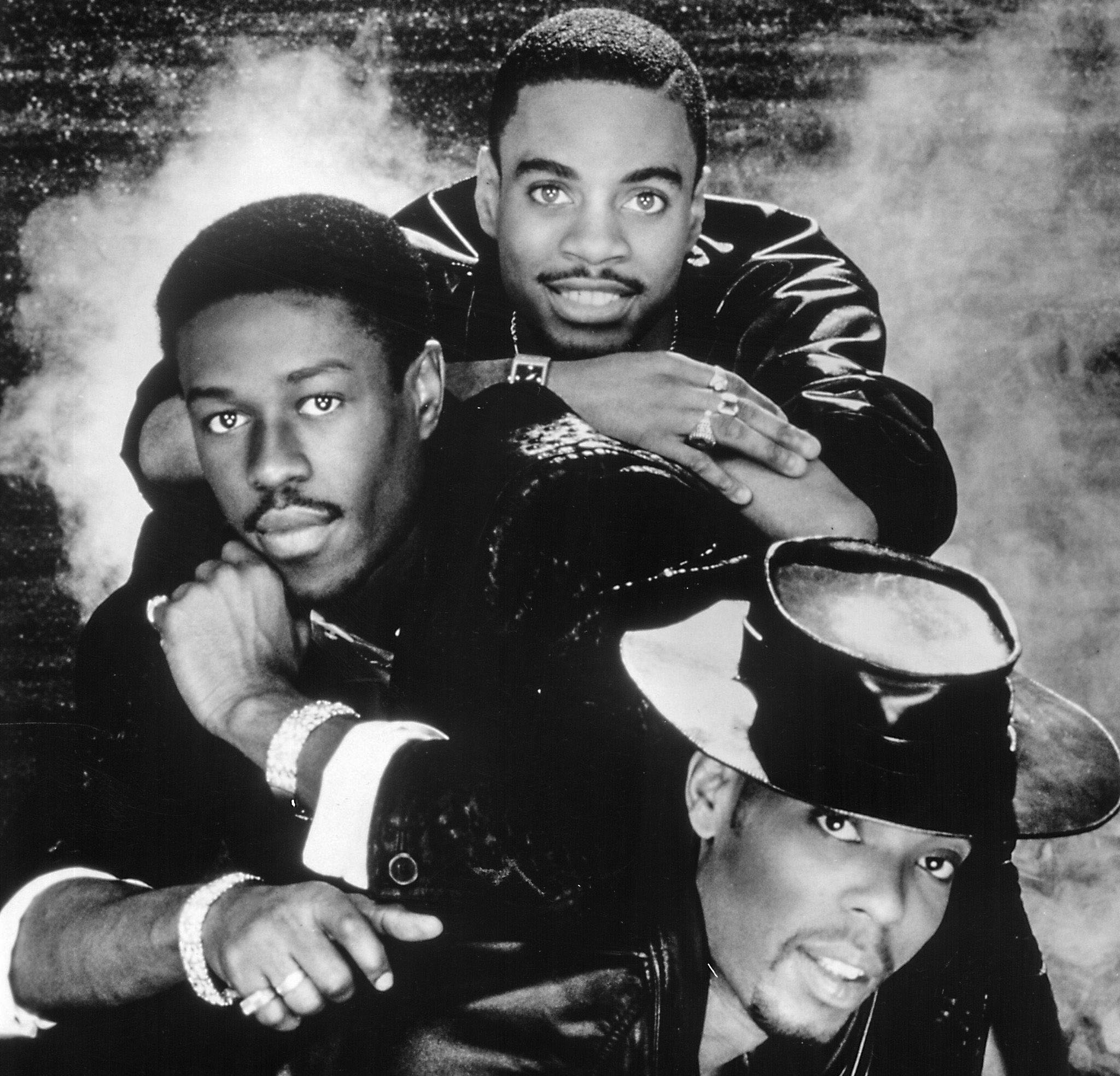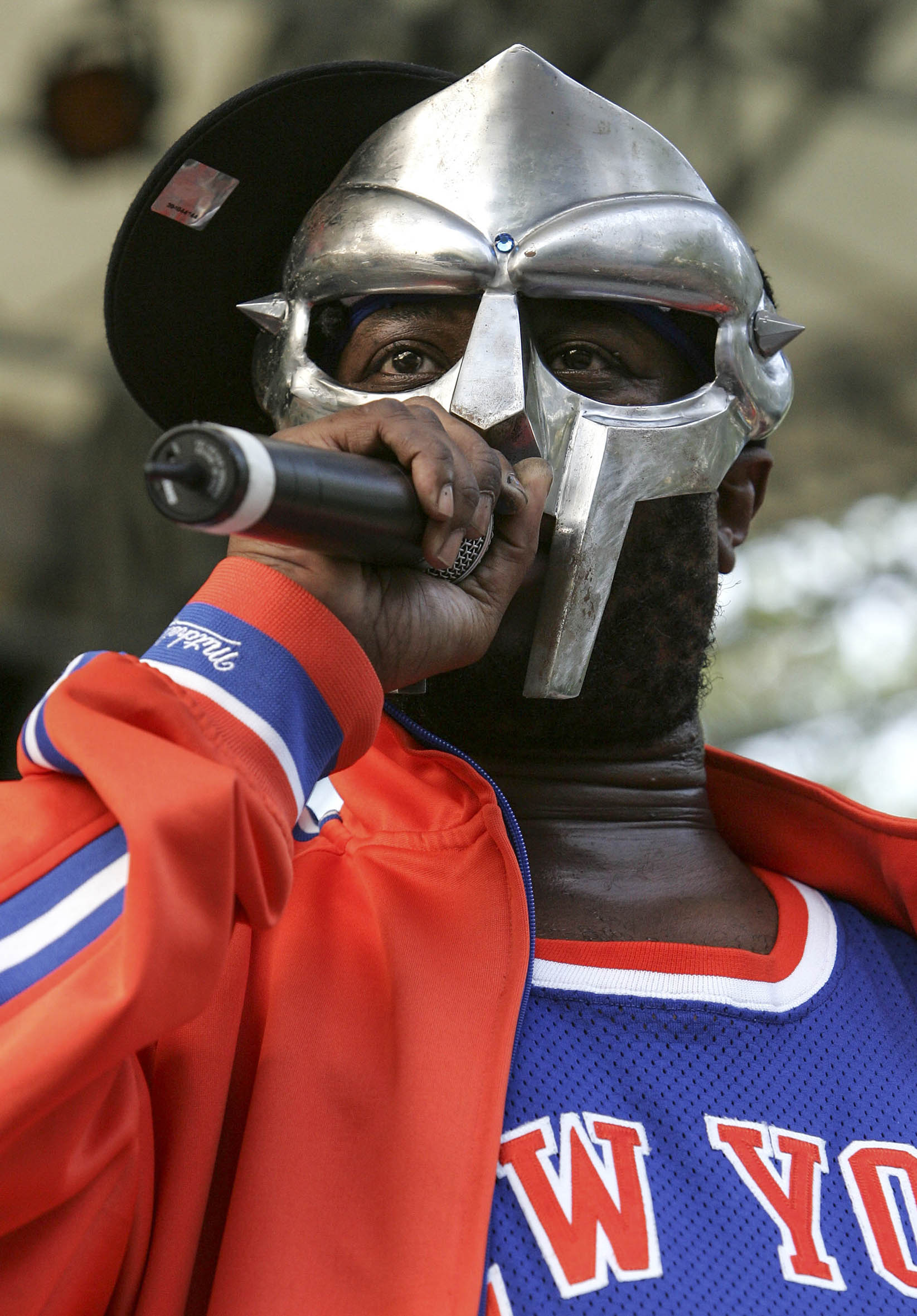Free fall: Meshell Ndegeocello covers Whodini's Friends.
From its history as the salve to nihilistic gang wars in the Bronx to its evolution as a multipronged form of expression centred on teamwork, hip-hop has remained the very stuff of male bonding.
When I first came across rap music, after the false starts of MC Hammer, Vanilla Ice and Milli Vanilli, crews or posses ruled the roost. My first year of high school was soundtracked by NWA and A Tribe Called Quest. The one was a self-styled “gang” from Compton and the other was a four-man group that formed part of an even larger collective of mostly men known as the Native Tongues.
Forget features. Posse cuts, in which everyone gatecrashed the party, usually bumped up the levels of testosterone to bodybuilding levels. Take A Tribe Called Quest’s Scenario, a song that introduced the world to the madcap antics of Busta Rhymes and his group Leaders of the New School. It is, quite literally, a verbal gymfest bouncing off the track’s backbeat and landing hard against the studio’s soundproofing. It is a song of its time, braskaap and cameos filling out every frame of its video.
Whodini’s Friends (from the 1984 album Escape) was more the exception than the rule in the songbook. Mostly because of the cold fact of the socialisation of young men (with rap groups springing out of organic “crews”), friendship was hardly the stuff of critique in rap songs until we were firmly out of the era of groups.

[Whodini (Hewlett-Packard Company)]
In a 2014 Hard Knock TV interview, Public Enemy frontman Chuck D credits the emphasis on the individual in hip-hop with its upward trajectory as a commercial force.
“When the recording contracts came about and they recorded ‘five people that sound like one’, like the Furious 5 used to say, the problem came into the area of renegotiation,” he said. “If it was hot, you had to renegotiate with like five people … It’s easy to cut a deal with one person and just deal with the lawyer. So it’s still a team, it’s just a team of others. Not the team of makers and creators.”
It is in the context of this separation of men used to the communion provided by groups that we get a song such as KRS One’s A Friend, from his 1997 album I Got Next.
Cofounder of a crew called Boogie Down Productions (BDP), in 1993, in what was the first album credited to KRS One as an individual, we find the Blastmaster still celebrating the emboldening powers of team spirit with the song Mad Crew. He is still in Boogie Down Productions mode, issuing threats (“I’ll do a number on your body structure”) with the backing of the squad, the “mad, mad crew”.
By 1997, KRS One hardly invokes BDP, preoccupied, instead, with the sincerity of pared-down arrangements.
Fred Flintstone and Barney Rubble/ Still I got my own space like Hubble
Another artist going solo after the industry-forced demise of his crew is British-born American enigma, DOOM. The untimely loss of his younger brother Dingilizwe Dumile and the subsequent stalling of DOOM’s career (after the label refused to release their second album) are fragments that, somehow, made their way into the persona of MF DOOM. In a distilled fashion, these events also find their way into Deep Fried Frenz, a song from the 2004 album Mm.. Food.

[British-born American enigma, DOOM (Peter Kramer/ Getty Images)]
Switching between several interlinked alter egos during this period of his career, the connecting thread between Operation Doomsday, released in 1999 and Mm.. Food appearing five years later, is the fact that they are credited to the same, dominant persona of DOOM. What Doomsday gives to Mm.. Food is the gift of fermented bitterness, which finds its most potent moment in the song Deep Fried Frenz.
In Operation Doomsday, DOOM is hanging out with the Monster Island Czars (affiliates we would eventually see less and less of) and careening from the lingering pain of his brother’s accidental death. In Mm.. Food, the pain has turned our narrator into an unreformable, principled recluse.
Deep Fried Frenz is a creatively sampled song. DOOM chops the saxophone chorus of Ronnie Laws’ Friends and Strangers, stretching it out over two bars for the loop of his beat. He also takes the iconic chorus of Whodini’s Friends, which he splices up and rearranges around the song as a kind of thematic punctuation. Snatches of “Friends!” mark a segue into a different aspect of the day’s topic.
Conceptually, DOOM takes the discursive scope of friendship and expands it, conflating it with a whole host of family ties and social relationships:
Mom, dad, comrade, peeps, brothers, sisters, duns, dunnies/ Some come around when they need some money
He then turns around and delineates the borders again:
Some make us laugh like the Sunday funnies/ Fam be around whether you paid or bummy
There are also codes for friends with benefits, with DOOM expressing his preference for looser arrangements:
Before lovers, we need to have some type of over-standing/ Just so when I let her get the man thing, she know it’s no strings
DOOM’s non sequitur rap style allows him to throw in all sorts of pithy observations (Ten bucks say they tell for a lower sentence) and guidelines to attaining peace of mind (Turn a deaf ear to the cellular phone). It is these that help turn Deep Fried Frenz into, arguably, the most rounded exploration of the topic.
Of course, with Whodini’s 808 snares and some lines from their verses appearing in Deep Fried Frenz, DOOM’s version is nothing if not an improvement on a great, if simplistic, foundation. Proudly chauvinistic, DOOM does little to shift the original’s male-centric lens.
The answer would come 10 years later, in the form of a cover by songwriter, producer and bass player Meshell Ndegeocello. Discussing her remake of the Whodini hit, a cover coming 30 years after the initial song’s release, Ndegeocello tells music show Off the Record: “I like how language is morphing. ‘Friends’ is just such a malleable word. I don’t even know what it means anymore.”
Essentially, Ndegeocello takes Whodini’s simple rap ditty and gives it the jazz-funk treatment. She runs the vocal through a modulator that pitches it downwards, giving it a cold, bionic tinge of aloofness and officialdom. She does a faithful rendition of the first verse, significantly, skipping the line “homeboys through the summer, winter, spring and fall” but repeating “and some we wish we never knew at all”.
Opting for Whodini’s third verse as her second, Ndegeocello raps the first seven bars faithfully, taking the misogyny out of the eighth bar (Couldn’t trust her with cheese let alone your keys) by skipping it. She opts to repeat the line “with friends like these you don’t need enemies”. She also pitches the vocals to mimic a feminine voice.
Ndegeocello’s version, shot through with buzzing synths, beatless passages and stark guitar riffs, is the aural sensation of the concept of friendship in free fall. It is through this landmark update that one develops a sense of appreciation for the original.
“Secretly, I play with a lot of people who play improvisational music and jazz,” she said on Off the Record. “In my mind I wanted to take something that they thought would be simple and easy to do, and try to do something different with it.”
Something different indeed. By breaking the lyrics apart, playing with vocal tone and pitch, Ndegeocello heightens the sense of pathos conveyed by the lyrics. Her careful edits free the song from its trap of male bondage, thereby freeing it from the juvenile pomposity of three men who clearly considered themselves rap’s sex symbols.
As Ndegeocello stated in the Off the Record performance, the covering of hip-hop songs (by artists working in other genres) is not really a thing. Her cover is probably the greatest unknown gift to hip-hop.
As always, even in the male-dominated genre that is hop-hop, the dirty work of balance is often relegated to the women.